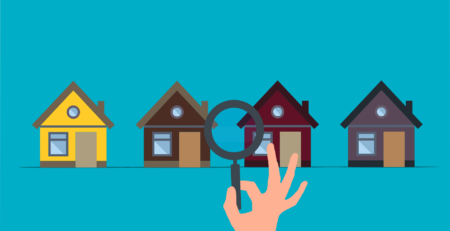Choosing Between Rural and Urban Living
The choice between rural and urban living is a significant decision that impacts various aspects of your lifestyle. Whether you’re drawn to the tranquillity of the countryside or the bustling energy of the city, each environment offers distinct advantages and challenges. This guide will delve into the pros and cons of both rural and urban living, helping you make an informed choice that aligns with your needs and aspirations.
Rural Living: Benefits and Drawbacks
Benefits of Rural Living
Space and Privacy Rural areas are known for offering more space, both indoors and outdoors. Homes are generally larger, and properties often come with extensive gardens. This abundance of space allows for greater privacy and the opportunity to engage in activities like gardening or outdoor sports, which might be limited in urban settings.
Lower Cost of Living One of the most appealing aspects of rural living is the lower cost of living. Housing is typically more affordable, property taxes are lower, and daily expenses such as groceries and utilities can also be less costly compared to urban areas. This financial advantage can provide more freedom and stability for families and individuals alike.
Community and Wellbeing Rural communities often foster a strong sense of belonging. Neighbours tend to know each other, and there’s a greater emphasis on communal activities and support networks. This close-knit environment can enhance wellbeing and reduce feelings of isolation. Moreover, the cleaner air and lower pollution levels contribute to a healthier lifestyle.
Natural Beauty and Tranquillity Living in the countryside means being surrounded by nature. The scenic landscapes, wildlife, and open spaces can provide a peaceful and serene living experience. This connection to nature can lower stress levels and promote a more relaxed pace of life.

Drawbacks of Rural Living
Limited Amenities and Services Rural areas often lack the wide range of amenities and services found in cities. Access to healthcare, shopping, entertainment, and dining options can be limited, requiring residents to travel longer distances for these necessities. This can be particularly challenging in emergencies or for those without reliable transportation.
Transportation Challenges Public transportation in rural areas is typically less developed than in urban regions. This means residents often need to rely on personal vehicles, which can be inconvenient and costly. Additionally, the distances between destinations can result in higher fuel costs and longer travel times.
Fewer Employment Opportunities Job opportunities in rural areas can be sparse, especially in specialized fields. This limitation may necessitate commuting to urban centres for work, adding to daily travel times and expenses. For career-oriented individuals, this can be a significant drawback.
Potential for Isolation While rural living offers peace and quiet, it can also lead to feelings of isolation, particularly for those accustomed to the social and cultural vibrancy of city life. Adapting to a slower pace and fewer social opportunities can be challenging for some.
Urban Living: Benefits and Drawbacks
Benefits of Urban Living
Access to Amenities and Services Urban areas are rich in amenities and services. Residents have easy access to a wide range of shopping centres, healthcare facilities, educational institutions, and entertainment options. This convenience is one of the primary draws of city living, providing everything you need within close proximity.
Employment Opportunities Cities are often economic hubs, offering diverse job opportunities across various industries. For career-driven individuals, urban living provides ample prospects for professional growth and advancement. Public transportation systems in cities also make commuting easier and more efficient.
Cultural and Social Diversity Urban environments are melting pots of culture and diversity. The availability of museums, theatres, music venues, and restaurants means there is always something to see and do. This cultural richness fosters an inclusive atmosphere where people from different backgrounds can thrive.
Efficient Public Transportation City residents benefit from well-developed public transportation networks, including buses, trains, and trams. This infrastructure reduces the need for personal vehicles, making commuting more affordable and environmentally friendly.

Drawbacks of Urban Living
Higher Cost of Living The cost of living in urban areas is generally higher. Housing prices, property taxes, and daily expenses such as groceries and utilities are more expensive compared to rural regions. This financial burden can impact your overall quality of life and necessitate higher incomes to maintain a comfortable lifestyle.
Noise and Pollution Cities are often associated with noise and air pollution due to traffic, industrial activities, and dense populations. This environment can negatively affect health and wellbeing, leading to higher stress levels and respiratory issues.
Limited Space and Privacy Urban homes are typically smaller and more closely spaced than rural properties. This lack of space can lead to a feeling of confinement, and the limited privacy might be challenging for those who value their personal space.
Crowded and Competitive Environment The fast-paced lifestyle in cities can be stressful. Crowded public spaces, competitive job markets, and the constant hustle can take a toll on mental health. For individuals seeking a more relaxed and peaceful life, urban living might not be ideal.
Key Considerations for Your Decision
Lifestyle Preferences Your personal preferences and lifestyle play a crucial role in deciding where to live. If you thrive in a vibrant, fast-paced environment with plenty of cultural and social activities, urban living might be the right choice. Conversely, if you value peace, privacy, and a closer connection to nature, rural living could be more suitable.
Family and Future Planning Consider the needs of your family and future plans. Urban areas offer diverse educational opportunities and extracurricular activities for children, while rural areas provide a safer, more nurturing environment. Think about what will best support your family’s growth and happiness in the long term.
Financial Situation Your financial situation is a significant factor. Urban living requires a higher income to cover the increased cost of living, whereas rural living offers more financial flexibility. Weigh the potential savings against the convenience and opportunities provided by city life.
Access to Services and Amenities Evaluate the importance of having amenities and services close by. If frequent access to healthcare, shopping, and entertainment is essential, urban living might be more convenient. If you’re comfortable with occasional trips to nearby towns for these needs, rural living could be a viable option.
Career Opportunities Consider your career aspirations and job opportunities. Urban areas provide a wider range of employment options and the potential for professional advancement. If your career can be pursued remotely or locally, rural living might offer the peaceful environment you desire.
Conclusion
Choosing between rural and urban living is a deeply personal decision influenced by various factors, including lifestyle preferences, family needs, financial situation, and career goals. Each environment offers unique benefits and challenges that can significantly impact your quality of life. By carefully considering these factors and understanding the pros and cons of each setting, you can make an informed decision that aligns with your values and aspirations.
Ultimately, the right choice is the one that best suits your individual circumstances and enhances your overall wellbeing. Whether you opt for the tranquillity of the countryside or the vibrant energy of the city, making a thoughtful and informed decision will lead to a fulfilling and rewarding lifestyle.
ARE YOU READY TO START INVESTING?
Subscribe to our mailing list now for exclusive deals, investment guides and the latest information from the property market.







